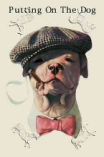|
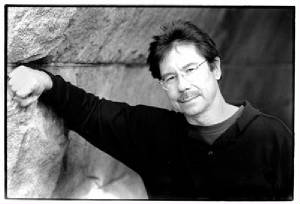
|
| Stuart Dybek (photo by Jon Randolph) |
Likened to such American literary giants as Ernest Hemingway and Sherwood Anderson, Stuart Dybek was born in 1942 in a Chicago immigrant neighborhood, and writes often about that urban reality. Dybek received
a B.S. (1964) and an M.A. (1967) from Loyola University of Chicago and an M.F.A. (1973) from the University of Iowa.
Currently Distinguished Writer in Residence at Northwestern University, he was a professor of English at Western Michigan
University from 1974 to 2006 and continues to teach in WMU’s Prague Summer Program. Dybek is the author of three
books of fiction, Childhood and Other Neighborhoods (1980), The Coast of Chicago (1990), and I Sailed with Magellan
(2003), as well as two collections of poetry, Brass Knuckles (1979) and Streets in Their Own Ink (2004). His
work has appeared in numerous publications, including the New Yorker, Harper’s Magazine, Tin House, the Paris Review, and the Atlantic Monthly, among many others. Dybek is contributing editor
of The Alaska Quarterly Review.
Dybek's
work has won numerous awards, among them a Lannan Prize,
a PEN/Malamud
Award, a Whiting Writers' Award,
a Guggenheim,
and numerous O. Henry Prizes.
His work has been included in The Best American Short Stories
and The Best American Poetry.
On September 25, 2007, Dybek was awarded a MacArthur Fellowship.
One day later, he was awarded the 2007 Rea Award for the Short Story, a $30,000 annual prize given for "originality and influence
on the genre."
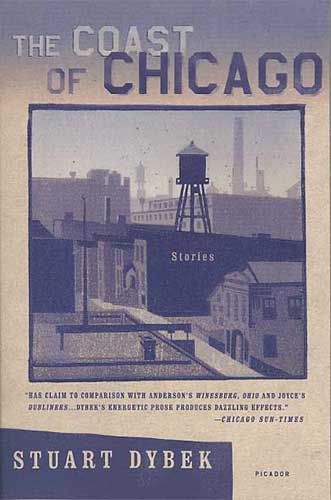
Zinta
for The Smoking Poet: Welcome, Stuart. We are very honored to have a beloved Kalamazoo literary talent on our pages …
but your literary reach goes far beyond southwest Michigan. And I suppose we will have to arm wrestle Chicago to call you
our own. Although I’m guessing Chicago will win that one. (By the way, I’m Chicago born, too, and in an immigrant
neighborhood, and I’m constantly going back to that city to visit family, so don’t think I’m giving you
that tough of a time here.)
Chicago named your story collection, The Coast of Chicago, the “One Book, One Chicago” selection for 2004, meaning this was the one book
being read at libraries and high schools throughout the city that year. We’re going to have to work on something like
that in Kalamazoo, I think. Only mention of Kalamazoo in a story you’ve written was once in Virginia Quarterly?
Are you an urban man at heart and soul? Was that
choice already made for you at birth, home on the city street? Although that immigrant atmosphere, the immigrant voice …
it is something of a kind of forever homelessness …
Stuart Dybek: I certainly was imprinted by both place and family. Aren’t
most people? The difference is that a writer writes about it. Place was a port of entry neighborhood in inner-city, working-class Chicago, called Pilsen, and its adjacent
‘hood, Little Village. Little Village
was one of the titles I considered for the book that ended up as I Sailed With Magellan. I grew up in an extended immigrant family. Because
the family lived in that place, Pilsen, a place that was historically home to numerous such immigrant families, the emotion
toward family and place became conflated. By the time I was in college, economic
pressures had scattered the extended family. And my immediate family was forced to relocate to Memphis, TN, when the International
Harvester plant where my father had worked for 30 years closed. I chose to stay
behind in Chicago and I would return to those city streets as if they were both home and family. My younger brother, David, who was too young not to relocate, would take the map of Chicago out at night
and trace the streets with his fingers before he could go to sleep in his new home in Memphis.
One sees
a similar imprinting and a similar conflation in many writers of place. The place
becomes personified, a character, a part of the family; or is the family that is a part of the place?
TSP: Place has a very strong presence
in your work. You evoke place by appealing to all the senses, and give it its own heart beat. Its own voice. To read your
work is to see it, smell it, touch it, taste it, hear it, and so, become immersed in it. Impossible not to. Tell us how you
consider setting for your stories. Is it first and foremost, then peopled with characters? All born at once and hopelessly
intertwined?
Stuart: The way in which place appears in my work, no matter what genre, is an instinctive choice. I blurbed The Wagon, a memoir by a Chicago cop, Martin Preib, last year, and in it Preib describes
his conscious wish to write about Chicago and to be a Chicago writer. It caught
my attention, because that kind of notion never occurred to me when I began writing.
I had Chicago models, sure, but I was easily as interested in writers like Kafka, Babel, Joyce, Borges, Calvino, and
South American poets, French poetry, Eastern European poetry. I was actually
surprised when after my first book of fiction, Childhood and Other Neighborhoods, appeared, reviewers placed me in
the Chicago Tradition. The tradition was one of realism. That wasn’t what I was writing. I was, however, aware that I used place—Chicago—as a
way of organizing that first book of fiction. That is, it was a conscious decision
to try and unify it by including only stories set in the city, as I had written others that were not set there.
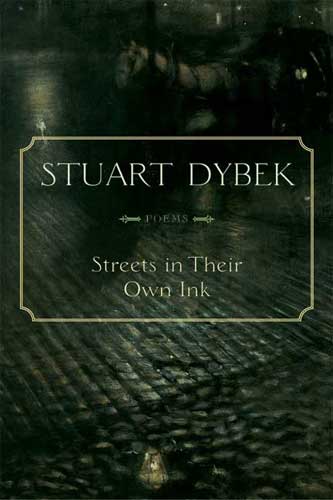
TSP:
You were born in an immigrant neighborhood in Chicago. That gritty urban life has ingrained itself deeply into much of
your work. Is it best to write what we know? Has writing about that urban life helped you to understand your roots (all writing
is therapy)? One senses a writer’s mind in many of your characters, with vivid imaginations that constantly tease at
new stories …
Stuart:
How about, Write beyond what you know, or
Write what you didn’t know you knew until you wrote it. I think “write what you know” can be reliable advice,
especially for realists, but it isn’t the only advice worth considering. Usually
that statement is taken to mean 'write based on your own life experience.' But
what a writer knows can also be learned from research and study. In fact, such
research feeds the imagination. Then, there is the power of imagination itself, which when crossed with experience or memory,
and harnessed by craft, can take a writer to a knowing that he didn’t know he possessed.
Imagination plays a key role in many of my stories where it often appears as a survival skill, especially
on the part of young narrators and characters. In such stories, the power of imagination
isn’t escapist (passive), but rather it can offer escape (active) from oppressive social conditions. Sometimes when oppressed and disadvantaged all one can change is perception. That
is where imagination comes in.
TSP:
You write poetry and you write prose. And, in prose, you write short stories, a novel in stories, short shorts. You also
write plays, songs. What is the process of how an idea moves toward one or the other shape? Does an idea ever take on more
than one, perhaps as an image to be captured in a poem but then also expanded into prose?
Stuart:
Genre for me is a tool, not a religion or
an ethnicity. There are aspects of writing that transcend genre. The use
of image, for instance. And so it is possible to initially generate in one genre
an image that when explored might end up being more completely realized in another genre. That
has happened to me several times when poems morph into stories. A novella called
Four Deuces that I recently finished was written with adapting it into a play in mind. Even if the play is never staged, that kind of cross pollenization influences a piece on numerous levels—including
the search for inner form. Then, there are the kinds of pieces that are set in the overlap between genres, such as prose poems
and what are currently being termed flash fictions. I am working now on a comic
nonfiction novel that combines elements of both fiction and nonfiction. We tend to think of genre, especially as it is taught
in the academy as sequestered domains in the kingdom of literature. That can be
a helpful way to study genre from an Aristotelian perspective. But for a working
writer, as opposed to a scholar or a reader, a more intuitive way to regard genre would be as gradations along a continuum
upon which one can locate a work either within or in between the classical definitions of genre.
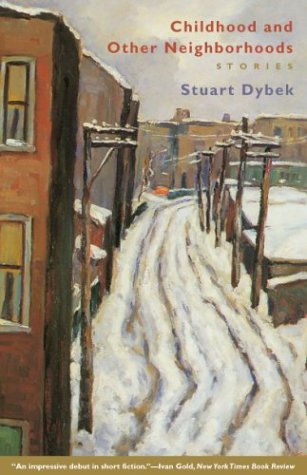
TSP:
As with many artists, creativity in one area can often mean creativity in another. You are also a talented musician …
saxophonist … and have played in bands. And, sometimes you write about musicians and music. What does music do for you
that writing might not? Does one art enrich the other or simply lend color to an occasional character? Playing jazz can be
like telling a story, too, in notes … do you tell the same story when you pick up a sax?
Stuart: I am not a talented musician. If I was I don’t know that writing would be where most of my energy was directed. Music is the closest thing I have to religion. I feel, though don’t ask me to document it, that I
learn as much about writing from music as I do from reading. I listen to music
when I write work in early draft. It opens the censors and makes me dream daylight
dreams. Music is the primal source for the kind of emotional thinking that, for
me, all the arts are about, and I want, impossible as it is, for writing to aspire to the nonverbal, sensual communication
that is music. Language, the medium of writing, is abstract. I want writing that swims upstream against that abstraction.
TSP:
You’ve said elsewhere that life isn’t linear. Which, of course, it is not. And that’s why you haven’t written a novel, or published one …
but a novel in stories, that is, all the stories told by the same narrator, instead. Do you write in images? Story per image?
And then fit the pieces? Something like life does … fit in one piece, then another, and sometimes they fit better than
other times. Other times, you have to chew off an edge to make it fit. Maybe a novel by its nature is artificial in that sense.
Forces life to be neater than it really is. Forces every effect to have a consequence, whereas life is loaded with irrelevancies
and misfits and nonsense and loose ends. Introduce a colorful character, but then he never appears again.
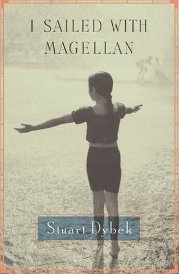
Stuart:
If I was quoted somewhere as saying that
the reason I haven’t written a novel is because life isn’t linear, then I misspoke. There are numerous novels that aren’t linear. If there
weren’t, the fact that life is not, so far as I am concerned, linear, would be good reason to make one up. I don’t remember what interview that might be from, but what I think I must have meant to say is that,
the novel in stories is one example of a very workable form in which to express nonlinearity. I
do remember in an interview explaining that my novel in stories, I Sailed With Magellan, was, for me, a personal
solution to complete a novel that many years earlier I had failed to write in a more conventional linear form. I am actually working now on what I am calling a comic nonfiction novel.
Several chapters from it have appeared or are upcoming in magazines—Harper’s, The Atlantic, TriQuarterly,
Playboy, ESPN, Bomb, etc. That novel is basically a bildungsroman and has
a conventional chronological (linear) narrative design. Images do play a very important role in the way I write. One doesn’t just write employing imagery; one thinks through images. It
is a way of thinking metaphorically or lyrically. For me one of the most beautiful
moves in writing is when an image opens into a story, and conversely, when a story closes into an image.
TSP:
Are you a nitpicker when you write? Go back again and again to pick a nit and
make it better? Or do you reach a point where you put in the period and walk away a free man?
Stuart: I do tend to go back a lot over poems and stories. Most writers I know do, but maybe that is just a case of birds of feather flocking. I suppose, going over and over a piece is inescapably a kind of nitpicking, but that
is not how I really think about rewriting—simply as editing. For me going
over a piece is retelling yourself the story over and over until it is ready to be told to a reader. Rewriting is putting a poem again and again into a bath of developing fluid, each time hoping it will emerge
with more clarity and inner form. In other words reimagining a piece, trying to
more deeply imagine it, even if only by a few words.
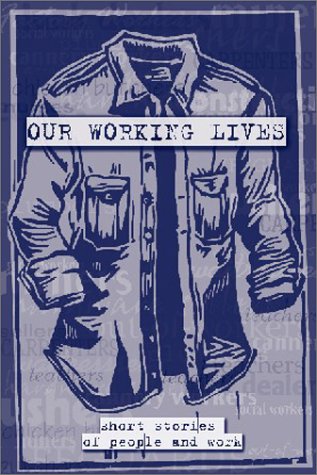
TSP: You are a writer who seems to take great pleasure in the craft of writing—it
shows in your work—and you’ve no doubt noted the many changes in publishing, great publishing houses struggling,
the demise of brick and mortar bookstores, and books moving from hard print to online. Even this magazine … I originally
thought this, being online only, was a stepping stone to hard print … now that seems like going backwards. But writing
for online reading can be quite different. Our attention spans are shrinking. We are a distracted people, bumping into walls
and dancing through traffic while on our cell phones and iPads. Have you pondered any of this when you write? Has it changed
your work at all? Or have you chosen to block it out, and maintain the fine craft of putting one good sentence after another
…
Stuart:
I haven’t chosen to block it out. I just naturally don’t think about it. It
would have to be a conscious decision to do so, rather than the other way around. For
me, the difference I am aware of is Google and all the other research capabilities that now are literally at one’s fingertips. It is possible to research a subject, a word, with a speed and ease that allows research
to be integrated into the act of composition.
TSP:
I tend to think that how we read may change, but that the human being by nature needs stories. In some form, always. The manner
of delivery may change, but we need stories to process the life experience, and to connect. Writing is therapy not only for
the writer, but also for the reader.
Stuart: I agree, of course. We
are wired to arrange experience into the form of stories. Stories are mnemonic; they allow us to remember and understand our
personal histories, and also the history of the tribe. A narrative line not only
organizes events along a chronological “arrow of time.” In doing so,
it also implies cause and effect. We’re talking here of literary stories,
but human beings turn most everything into stories—history, cases before the courts, political campaigns, the daily
news, etc. Stories such as those in the Bible become sacred texts that are then
worshiped. Telling stories can, I suppose be therapeutic. Hemingway said his typewriter
was his therapist. But therapy itself is often yet another form of storytelling. We dream in stories.
TSP:
Are you an inspired writer or a disciplined writer? Do you write every day? Have a routine to get yourself warmed?
Stuart: Like most writers I keep a notebook, which I loot
for ideas for poems and stories. I don’t know that I’d give myself
credit for being disciplined. I try to be. There
are periods in a life that are better than others for getting work done. I try
and help myself along in early draft by writing to music.
TSP:
I understand you write to music. Jazz. Who are some of your favorite jazz artists? Which ones lend themselves best as Dybek
muses?
Stuart:
When I first began to get serious about writing
back in senior year in high school and as an undergrad, I wrote almost entirely to jazz.
I was still playing sax then and still very close to one of the most profound educational experiences of my life, which
was the summer when I was sixteen and worked at an amazing place under the EL tracks (Editor’s note: EL is Chicago-speak
for elevated train) on Wabash in Chicago called Seymour’s Jazz Records. I
listened to music there probably eight to ten hours a day. It was a store for
collectors and had everything from vinyl through the history of 78s all the way back to the earliest recordings. I was a different person after a summer of working there.
I make a distinction between what I think of as “writing music” as opposed to sitting
around listening music. Miles Davis, a very moody player, would be an example of someone who produced, so far as I’m
concerned, more than his share of writing music. There’s a jazz bandoneon
player named Dino Saluzzi who records on the ECM label who I listen to a lot. Perhaps
the single best jazz album, also on ECM, that I ever acquired so far as how often I have written to it, is multi-reed player,
John Surman’s, Private City, a unique, brilliant, gorgeous piece of music. Those are just a few examples. I have hundreds
of records so I could spend quite a long time answering this question. I actually for years have listened to more classical,
and so-called “new music,” and world music when I am writing.
TSP:
With your own background, growing up around the Polish culture, but really, all the diversity that is a part of the inner
big city, what are your thoughts on our American tendency toward ethnocentric reading? We tend to read mostly only American
writers, and few American readers know about writers from other cultures, writing in other languages. The opposite does not
hold true. Travel in Europe, and most everyone has read translations from writers worldwide, including American authors. One
hopes it might be a positive aspect of our increasingly online lifestyles, that this might change. Do you read translations?
Have favorite writers from different cultures that affect you and inspire you?
Stuart:
I grew up with in an immigrant family in
an ethnic enclave of Slavs and Mexicans, and it is pretty obvious that has left a lasting impression on my writing. Tom Gladsky
in a book he wrote on Polish-American writers, termed my work “pan-ethnic.” By
that he meant that while my first attachment was naturally to a Polish-American subculture, the result was to make ethnicity
in general attractive and important to me. And I think that’s true. It has little to do with identity politics. It
is that those various cultures are rich and beautiful to me in and of themselves, and also that they offer a viable alternative
to a Mac-American popular culture that I feel critical towards, the America of People magazines, Disney, the Religious Right
at least as one gets it on talk radio…
So, it is probably no surprise that foreign writers—unfortunately read almost entirely in
translation—have been essential to me—just as European and World music has. Babel, Kafka, Marquez, Borges, Calvino,
Joyce, Dickens, all the Russians, Milosz, Herbert, Szymborska, many Eastern Europeans—I
teach in Prague each summer—Montale, Lorca, all the Spanish, all the South Americans, all the French, the Greeks, Ritsos
and Cavafy in particular, Kawabata, Murikami, all the Japanese, really including the great critic, Shirane … and mere
listing doesn’t begin to indicate how important and central foreign writers have been. Which,
of course, doesn’t mean that my reading hasn’t been steeped in writers of my own country—many Midwesterners
among them—Sherwood Anderson, Hemingway, Fitzgerald, I especially love that 20’s generation, and the great writers
of place from the South—Welty, Flannery O’Connor, Faulkner.
TSP:
Is any of your work available in translation?
Stuart:
All my books are in print in Japan thanks
to my wonderful friend and translator, Motoyuki Shibata, who is the founding editor of a terrific new international literary
magazine, Monkey Business International. Check it out. The work is very fresh.
My work has appeared in Chinese, Polish, French, Italian, Spanish, Danish, etc., translations as well.
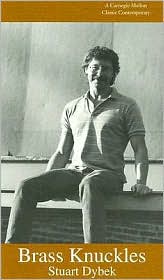
TSP:
Rumor has it you once intended to be a doctor … surgery of a different sort (I am thinking about writing as sometimes
healing the patient, or saving a life, or reconstructing something broken …) The possibilities: doctor, musician, social
worker, activist … ah yes, and you are also, of course, a professor. Does one have to be many things to be that one
thing, a writer? Lead a rich life in order to live a life of seclusion with one’s art?
Stuart:
Yes, I admit I’m a premed dropout. That is how it was referred to in my family as opposed to “changing my major.” I spent two years as a caseworker on the south and west sides of Chicago. I taught junior high and high for a couple years in the Caribbean. Worked construction, loaded trucks, blah
blah. When undergrads ask me if they should try and go directly into MFA Programs,
I do tell them that they might be better off giving themselves some time to flounder around on their own, learning to write
on their own without the structure of the university to sustain them, and to live a life outside the academy. Then when they
have something written, they can take that with them into an MFA program, if they still had that desire to pursue writing.
That said, one rushes to add that such advice is not a one size fits all. There’s no one path. Maybe so far as advice there’s just a collection of clichés such as the one I just employed.
TSP:
A far more delicious rumor: you are close to finishing a new book … maybe even plural? books? Please. Do tell.
Stuart:
Thanks for asking. I just finished a novella that I am adapting into a play. I
am one story away from a new book—which I am thinking of as a collection of love stories, though I don’t know
if anyone else will find them such. I have another book of much shorter pieces
I am thinking of as fragments that is also all but finished, and then there’s the in-progress nonfiction novel I mentioned. I also have a new book of poetry finished although it needs a thorough rewriting. So there is a lot of work, most it done over the last ten years and most of it published
in bits and pieces in numerous magazines and anthologies. I am hoping to feel
lighter once I get it off my desk. It will be a shock to actually see a desk out from under all the piles of manuscripts.
So far as my previous work, all my books are still in print, at least as of this moment, for which I am grateful.
TSP:
Thank you so much, Stuart. We won’t keep you any longer … because we want you to finish those new books. We wait,
but not patiently. Thank you.
Stuart Dybek on YouTube reading https://www.youtube.com/watch?v=tR6ii2CGYZA

|
| Chicago |
|
